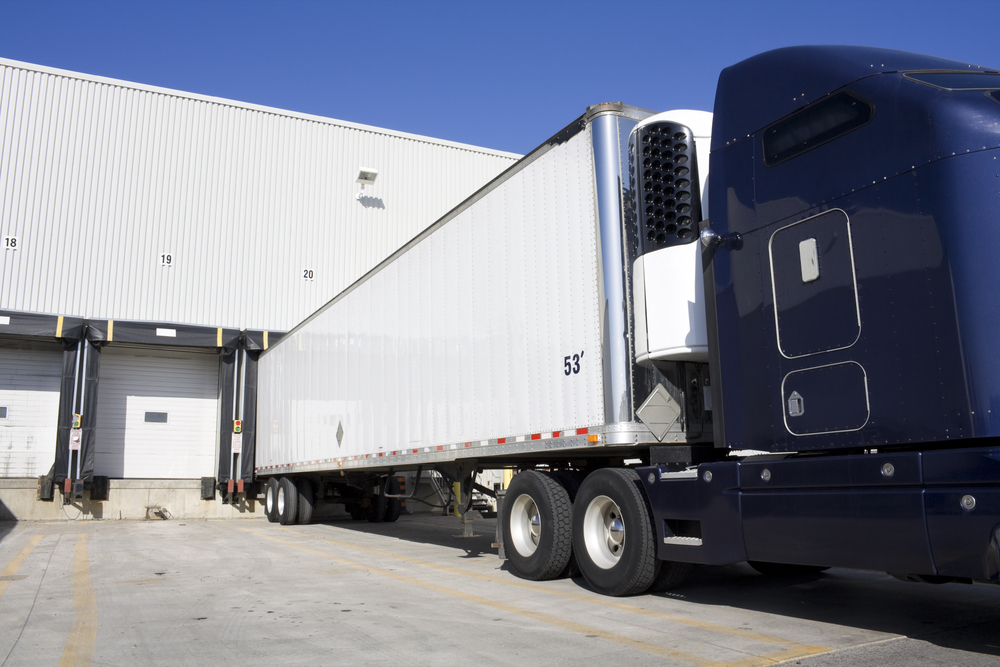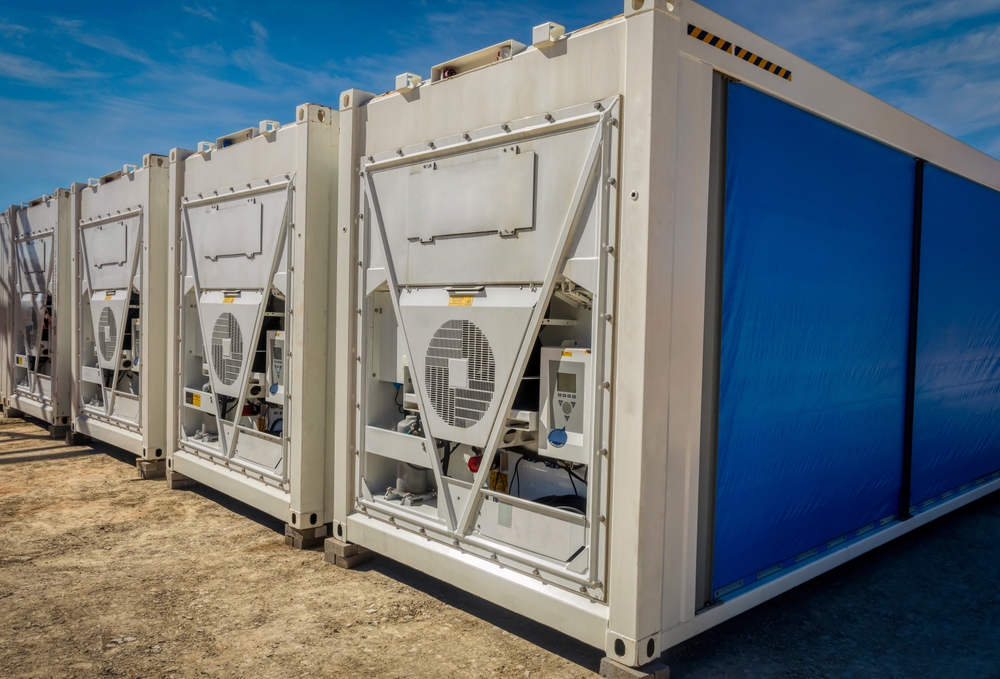An In-Depth Guide About Reefer Trucks
Posted On 1st November 2024In the freight industry, reefer trucks are a key solution for companies that want to transport products that require cold storage. These temperature-controlled vehicles guarantee the safe delivery of items like frozen foods, pharmaceuticals, and fresh produce, whether you're delivering them domestically or abroad.
Nowadays, many freight company owners are considering investing in a reefer truck as demand for these types of deliveries grows. It's easy to understand why when you factor in the massive earning potential that comes with them, too.
As a freight company owner yourself, you’re likely always seeking new ways to expand into other markets and grow your business; investing in a reefer truck could be the perfect place to start. In this guide, we’ll cover all the important details about reefer trucks to help you decide if they’re the right addition to your fleet.

What Is a Reefer Truck?
Before we go any further, let’s answer the question, "What’s a reefer box truck?" and show you why this type of vehicle plays such a crucial role in the logistics industry.
The simple meaning of the word "reefer truck" is that it refers to a semi-truck reefer equipped for temperature control. Think of them almost like a mobile fridge, only for freight. Instead of a standard trailer used for a load, these trucks have one that's fully refrigerated to keep the goods at a stable temperature, whether it’s slightly chilled or frozen. They're built with all kinds of incredible features, air suspension systems, and insulation, and can either be powered with diesel, electricity, or propane.
Reefer trucks are designed with cooling systems to keep the load at an appropriate temperature of roughly between 54°F (12.2°C) down to -94°F (-70°C) while it's in transit, although every system is different. Now, size-wise, you'll often find that reefer trucks come in lengths ranging from 28 to 53 feet, and while they may vary a bit in design, they’re almost never taller than 13.5 feet. As for the weight, 44,000 pounds is the maximum they can carry.
What Goods Can You Transport With a Reefer Truck?
Reefer trucks are not your typical vehicles; they are specially designed for transporting temperature-sensitive shipments that must be kept at a controlled temperature to prevent spoilage during transit.
These are just some of the items you can transport with a reefer truck:
- Meat and seafood
- Fresh fruit and vegetables
- Dairy products
- Tobacco
- Flowers
- Candy items
- Pharmaceutical products that require special storage, like insulin and certain eye drops
- Candles
- Beverages that can spoil
- Paints
Understanding the Mechanics of a Reefer Truck Unit
Behind every good reefer truck is a strong cooling system that keeps the items inside protected at all times. As we already mentioned, they can operate on different fuels, but regardless of the type, they all work in the same manner. The purpose of the cooling system is to remove the heat that builds up inside the reefer truck box and replace it with cool air so everything inside stays at the right temperature for the journey.
When we look at the mechanics of a reefer truck unit, it's made up of three important components: compressor, condenser, and evaporator.
- The compressor is the main driving force behind a reefer truck. Its job is to take a particular gas, which is known as 'refrigerant,' and pressurize it so it turns into a warm liquid.
- The second stage is when the warm liquid moves from the compressor to the condenser so it can be cooled through a fan attached to the unit. This fan consistently pulls in cool air and slowly starts to reduce the temperature of the liquid.
- Once the refrigerant is ready, it goes through what's known as an 'evaporator' that contains a metering valve that can regulate the temperature inside the unit.
Keep in mind that the interior of the reefer truck will be equipped with insulation, ensuring that the cold air remains trapped inside so the items are always at an appropriate temperature.

What You Should Know About Reefer Box Trucks Before You Buy One
Not All Reefer Vehicles Are the Same
Although all reefer vehicles are built to maintain specific temperature ranges for their cargo, they come in various forms, including trucks, trailers, and vans. Before making a decision on the best option for your company, you'll want to ask yourself what you're using it for. Are you looking to transport goods within your local city, or do you plan to cover long distances with heavier loads? Additionally, think about the types of items you intend to transport, as some vehicles are better suited for certain products than others.
Routine Cleaning Is Necessary for Reefers
As with any transportation involving foods, it is crucial to clean your reefer box truck regularly to prevent contamination. Failing to do so could put the load at serious risk, leading to potential financial losses. Something happens to the goods, and you end up having to cover the costs yourself, which will seriously ruin your company's reputation.
Your Reefer Truck Might Require a Different Type of Insurance Policy
With a truck reefer, you're taking on much more risk than if you were to take a dry load, so it could be a good idea to take out a comprehensive insurance policy that covers you for any accidents.
There are certain refrigerated truck insurance policies you can purchase that will cover you in case any of the items in your loads get spoiled, but your current insurer may also offer this service if you ask them.
Reefer Truck vs Dry Van: Which Is the Better Option?
When it comes to choosing reefer trucks vs dry vans, the most suitable option for you depends on the type of load you're transporting. Unlike reefers, dry vans are solely for moving dry, non-perishable items like clothing, electronics, and household goods without the need for a temperature-controlled reefer on a truck. Let’s take a closer look at the features of each option to help you determine which one is best suited for your company.
Reefer Trucks Provide a Wider Range of Job Opportunities
If you own a reefer, you're bound to get more job opportunities as the demand for the products transported with them will always be there, from foods to pharmaceuticals.
But, with a dry van, your options are strictly limited to products that people may want but won't actually need if the economy ever slows down, like mobile phones, shoes, or furniture.
You’re Less Likely to Have Empty Loads With a Reefer Truck
A high demand brings increased load amounts, so the chances of you having to run journeys with empty loads are much less than if you had a dry van. One luxury reefer drivers have is that even if there are no cold loads around, they can still take a dry one as their vehicles are built for it. Unfortunately, if you're driving a dry van, you're pretty much stuck and have to wait for a dry load to pop up; you can't just flick a switch and start cooling your truck like a reefer.
Reefer Vans Are More Expensive Than Dry Vans
Compared to dry vans, Reefer vans are typically more expensive to purchase because of the extra insulation and cooling system required to run them.
On top of that, reefer vans require significantly more maintenance, as it's crucial to closely monitor the refrigeration system to prevent any unexpected issues during transport.
You Can Charge a Higher Premium With a Reefer
Freight companies that have reefer trucks can afford to charge higher transportation fees as they're providing a specialized service to their clients with a higher risk. Remember that the items transported in a reefer truck undergo far more rigorous quality checks to make sure they arrive at their destination in pristine condition, just as promised. In contrast, when it comes to dry loads, the process is much easier: just load them onto the truck, secure them with straps, and they’re ready to hit the road.
Reefer Vans Have to Follow Stricter Rules Than Dry Vans
Companies that transport refrigerated items must adhere to more stringent regulations compared to those dealing with non-perishable goods.
Since reefer trucks often carry food and pharmaceutical products, it is essential that they comply with specific health and safety standards, which sometimes results in higher transport costs.
A Final Note on Reefer Trucks
And there you have it, that concludes our reefer truck guide. As you can see, these vehicles are an excellent investment for freight shipping companies hoping to expand their business and start delivering goods that need to be delivered at a controlled temperature.
However, it's crucial to do your homework before purchasing a reefer truck and understand what's involved with maintenance and budget considerations to make the right decision for your company.



